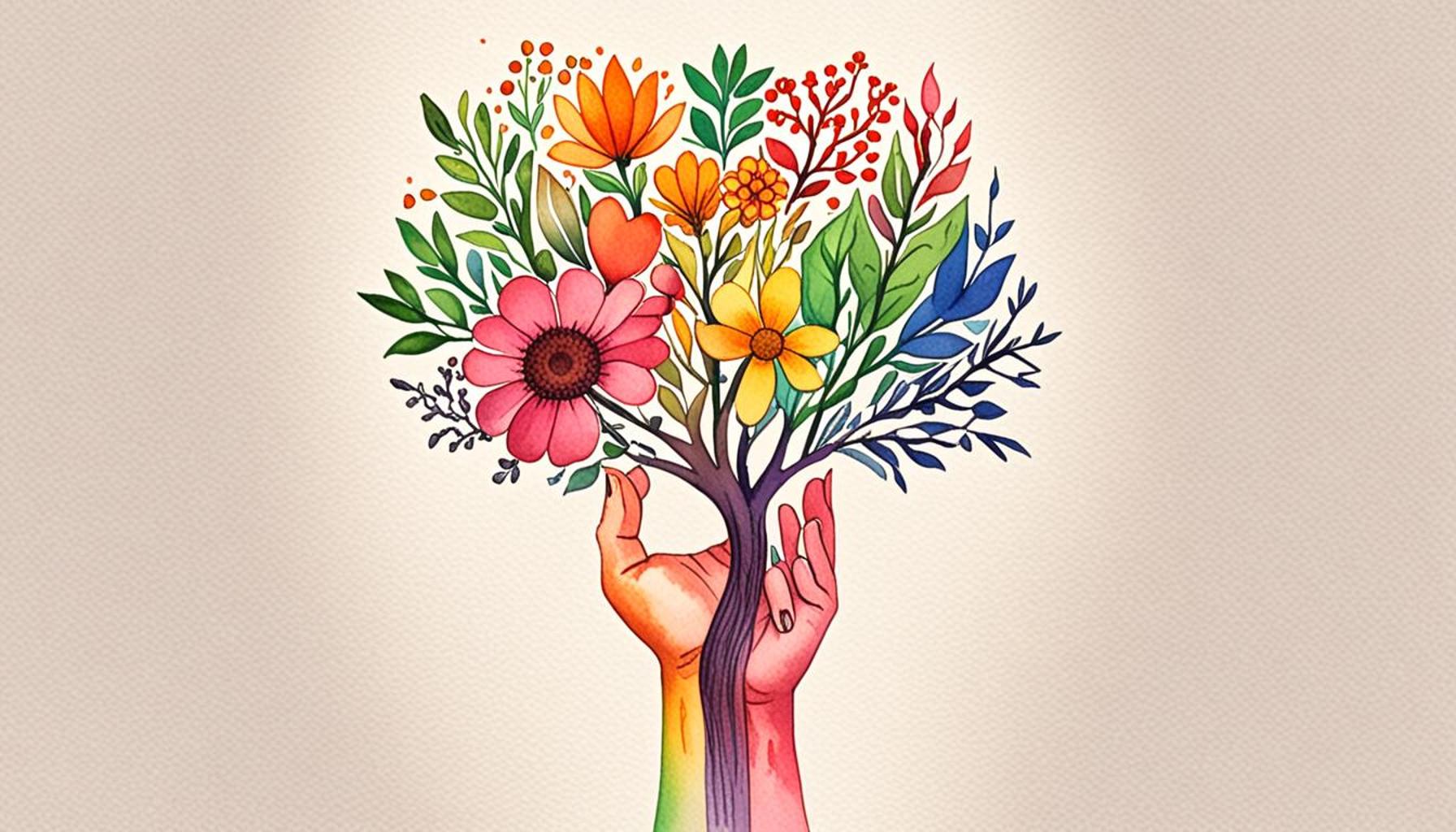The Importance of Resilience in Building a Growth Mindset

Exploring the Connection Between Resilience and a Growth Mindset
In today’s fast-paced world, where challenges can emerge unexpectedly, the ability to adapt and thrive is more crucial than ever. Resilience, defined as the capacity to recover quickly from difficulties, plays a pivotal role in forming a growth mindset. This mindset embodies the belief that individual abilities and intelligence can be cultivated through dedication, effort, and persistence. By understanding the intricate relationship between resilience and growth, we can equip ourselves to navigate life’s hurdles effectively.
The connection between resilience and a growth mindset can be understood through several key points:
- Overcoming Adversity: Resilient individuals often view challenges as stepping stones, not stumbling blocks. For instance, many entrepreneurs in Nigeria face numerous obstacles, from economic downturns to infrastructural issues. Those who adapt and find creative solutions, such as utilizing digital platforms to reach wider audiences, exemplify how resilience fosters growth.
- Embracing Failure: Rather than seeing setbacks as the end of the road, resilient individuals perceive failures as valuable learning experiences. This perspective can be witnessed in students who, after failing an important examination, take time to assess what went wrong and seek additional support. The result is often improved performance in subsequent attempts, showcasing the power of a resilient mindset.
- Continuous Improvement: Resilience fuels the motivation to persist and enhance one’s skills over time. In Nigeria’s dynamic job market, professionals who continually seek to upgrade their skills—through online courses or vocational training—demonstrate a commitment to personal growth. Their ability to bounce back from setbacks or industry changes often leads to better job prospects and greater financial stability.
Furthermore, fostering resilience not only leads to improved mental well-being but also enhances performance in various fields, including education and business. By embracing challenges and viewing them through a lens of potential growth, individuals position themselves for greater achievements. Understanding the importance of resilience in building a growth mindset empowers individuals and fortifies the strength of communities, encouraging collective progress.
Engaging with this vital trait can lead to profound changes in individual lives and the broader society. For example, community initiatives focused on mental health support and skills workshops can foster a resilient mindset among participants, leading to improved life outcomes. It is through nurturing resilience that we can truly unlock the potential for growth in ourselves and within our communities.
LEARN MORE: This related article may interest you

Building Blocks of Resilience and Growth
The journey towards cultivating a growth mindset is fundamentally intertwined with the principle of resilience. This relationship emerges in various aspects of life, particularly in how individuals confront challenges and develop their capabilities. In Nigeria, where the terrain of personal and professional life is often punctuated with obstacles, understanding the significance of resilience becomes paramount for fostering a culture of growth.
One pivotal aspect of resilience is the ability to maintain a sense of purpose despite setbacks. This intrinsic motivation can empower individuals to pursue their goals vigorously. For instance, consider the story of local artisans who faced market volatility due to economic pressures. Rather than retreating into hopelessness, many have turned to innovative practices—such as leveraging social media marketing to find new clients and showcase their crafts. This adaptability not only highlights their resilience but also exemplifies how embracing challenges can lead to unforeseen opportunities for personal and professional development.
A key characteristic of resilient individuals is their focus on problem-solving. They possess a curious mindset that seeks to understand obstacles rather than evade them. In academic environments, students who experience difficulty in subjects like mathematics often display a growth-oriented approach by seeking tutoring or studying in groups. This proactive stance transforms their struggles into stepping stones for success, underlining the essential link between resilience and a growth mindset.
The transformation induced by resilience extends beyond individual experiences and seeps into organizational culture as well. In Nigerian workplaces, fostering a resilient workforce can lead to overall productivity and innovation. Employers who encourage a culture of learning from failures typically observe a substantial increase in employee engagement and creativity. By empowering their teams to take calculated risks, businesses can cultivate an environment where challenges are met with enthusiasm, thus contributing to long-term success.
The advantages of resilience in fostering a growth mindset are evident in various life domains, including education, business, and community development. Here are several compelling benefits:
- Enhanced Coping Skills: Resilient individuals develop effective coping mechanisms that enable them to handle stress and navigate through life’s uncertainties.
- Strong Relationships: Building resilience often involves strengthening social connections that provide emotional support during tough times, fostering a sense of belonging and community.
- Increased Self-Efficacy: A resilient mindset cultivates a strong belief in one’s abilities to overcome challenges, boosting self-confidence and fostering growth.
Collectively, these benefits underline the notion that resilience is not merely a trait but a vital component in cementing a growth mindset. To fully realize one’s potential, especially in a challenging environment like Nigeria, embracing resilience is indispensable. Engaging with initiatives that promote resilience, whether through mentorship programs or community workshops, can serve as catalysts for fostering a growth-oriented mindset across all strata of society. By nurturing this essential quality, individuals and communities alike can unlock pathways to progress and prosperity.
Resilience plays a pivotal role in fostering a growth mindset, which is defined by the belief that abilities and intelligence can be developed through dedication and hard work. This intrinsic belief pushes individuals to embrace challenges, persevere in the face of setbacks, and see effort as the pathway to mastery. The synergy between resilience and a growth mindset creates a powerful force for personal and professional development.When individuals encounter obstacles, resilient individuals tend to interpret these challenges as opportunities for growth rather than as threats. This perspective shift is vital; rather than retreating from difficulties, they learn to confront and overcome them. According to research, embracing this mindset can lead to greater achievement and satisfaction in various areas of life, from academics to career pursuits.Moreover, resilience not only enhances one’s capacity to cope with adversity but also improves emotional well-being. It encourages traits such as optimism and positivity, further reinforcing a growth mindset. With a strong foundation of resilience, individuals are more likely to set ambitious goals and remain committed to them, acknowledging that failures are simply stepping stones toward success.In workplaces, cultivating resilience among employees can boost creativity and innovation. Teams that are resilient collaborate more effectively, supporting each other during failures while celebrating collective successes. This culture of resilience ultimately leads to increased productivity and a more engaged workforce. The interplay between resilience and growth mindset is essential for lifelong learning. Engaging in continuous development means being open to feedback, learning from experiences, and striving for improvement. Individuals who emphasize resilience are better equipped to face the inevitable ups and downs of life, proving that adopting a growth mindset is not just beneficial, but essential in today’s rapidly changing world. By integrating resilience into everyday practices, whether through mindfulness, self-reflection, or seeking social support, individuals can foster a mental environment conducive to growth and adaptability. Prioritizing resilience in educational and professional contexts ensures that the next generation is better prepared to navigate challenges with a positive and determined outlook, ultimately transforming potential losses into invaluable experiences and lessons learned.
SEE ALSO: Click here to read another article
Resilience: A Catalyst for Lifelong Learning
The interplay between resilience and a growth mindset significantly contributes to lifelong learning, especially in a rapidly evolving world. In Nigeria’s dynamic landscape, adapting and acquiring new skills are imperative. Resilience acts as a catalyst, propelling individuals to embrace continuous education and personal development. The notion that learning does not cease after formal schooling is essential for fostering a mindset geared towards growth and adaptability.
Consider the case of young professionals who transition from traditional fields to emerging sectors such as technology or renewable energy. Many of these individuals encounter steep learning curves and frequent rejections. However, their resilience enables them to actively seek out online courses, attend workshops, and network with industry professionals, allowing them to upskill and remain competitive. This pursuit illustrates how resilience drives individuals to cultivate a growth mindset through proactive engagement with learning resources that may not have been initially available to them.
Moreover, the role of resilience extends to how individuals perceive feedback. In a culture where criticism can sometimes be met with defensiveness, resilient individuals tend to welcome constructive feedback as an opportunity for growth. They understand that failure offers lessons that pave the way for improvement. For instance, educators who foster open discussions about challenges and mistakes in the classroom create an environment where resilience thrives. Nigerian schools that adopt this framework see enhanced student participation and motivation, reflecting a shift towards embracing growth rather than fearing failure.
Community resilience is also a critical aspect in this equation. When neighborhoods come together to support each other through initiatives like cooperative learning and skills-sharing programs, they collectively strengthen their resilience. This communal aspect of learning fosters a growth mindset, as individuals feel more secure in trying new ventures without the fear of isolation. Initiatives such as local entrepreneur cooperatives have emerged across Nigeria, where aspiring business owners share resources and knowledge, exemplifying how resilience at the community level can enhance individual growth.
The interplay of resilience and a growth mindset further influences mental health and emotional well-being. Resilient individuals are more often equipped to handle stress, allowing them to focus on growth opportunities instead of being mired in negativity. Mental health initiatives that promote resilience—such as mindfulness programs—are increasingly recognized in Nigerian workplaces and schools, highlighting the necessity of addressing emotional intelligence in fostering a growth mindset. Such programs help individuals develop adaptive coping strategies that empower them to manage stressors effectively, resulting in a more resilient and growth-oriented populace.
For personal and organizational success, cultivating resilience within a growth-oriented framework must be prioritized. It requires not just individual effort but collective action. By investing in community-led resilience programs and educational reforms that encourage a growth mindset, Nigeria can empower its citizens to navigate challenges with confidence and creativity. Events like the National Business and Technical Examinations Board (NABTEB) initiatives further reflect this growing understanding of the importance of resilience and continuous learning in fostering an environment conducive to growth.
In essence, the synergy between resilience and a growth mindset holds transformative potential for individuals, organizations, and communities alike. Through experiences, feedback, and continuous learning, the cultivation of resilience not only helps in overcoming immediate challenges but also in establishing a foundation for long-term personal and professional growth.
SEE ALSO: Click here to read another article
Conclusion: Embracing Resilience for a Thriving Future
In today’s ever-changing world, the integral relationship between resilience and a growth mindset cannot be overstated. As individuals, communities, and organizations navigate the complexities of modern life, resilience emerges as a cornerstone for fostering adaptability and continuous learning. By cultivating the ability to bounce back from setbacks, individuals are not only better equipped to face challenges but also to embrace opportunities for growth and development.
In Nigeria, where the landscape is marked by rapid change and budding entrepreneurial spirit, encouraging resilience allows citizens to tackle obstacles head-on. The experiences of young professionals transitioning into new sectors demonstrate that resilience fuels the pursuit of knowledge, enabling them to upskill and compete effectively. Additionally, communal efforts like cooperative learning initiatives emphasize the importance of collective resilience, providing a supportive network that reinforces a growth mindset.
Furthermore, embracing a culture that values constructive feedback and views failures as learning opportunities is essential. Mental health programs prioritizing resilience foster emotional well-being that dramatically enhances personal growth and societal progress. As we look ahead, the necessity of integrating resilience training into educational frameworks and workplace cultures becomes even clearer.
Ultimately, fostering a resilient mindset is a collective journey, one that requires commitment from individuals, communities, and leaders alike. By prioritizing resilience, Nigeria can shape a population that not only survives but thrives—one that is prepared to innovate and adapt to the challenges of tomorrow. As we continue to explore and cultivate the importance of resilience in building a growth mindset, the potential for transformative change grows ever greater.


